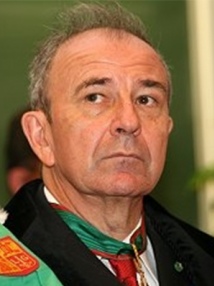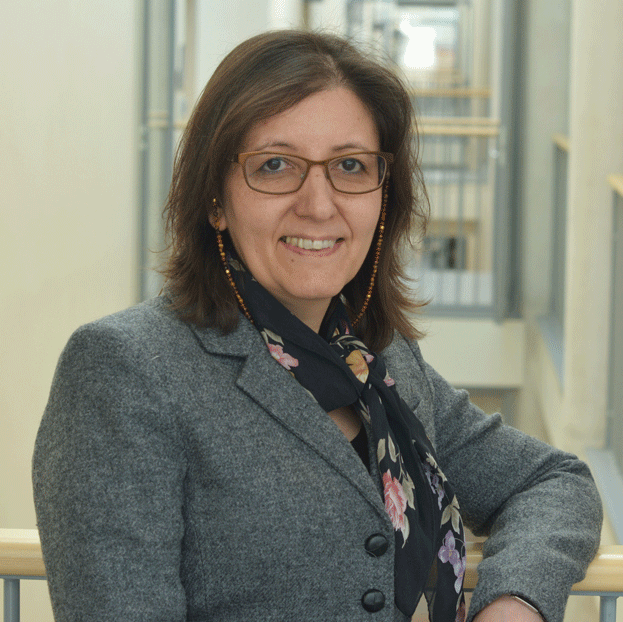|
|
|
Prof. Azzedine Boukerche, FiEEE. FEiC, FCAE, FAAAS
Distinguished University Professor
Canada Research Chair Tier-1
Scientific Director of DIVA Strategic Research Network
Director of CREATE-TRANSIT Network
University of Ottawa, Canada
|

|
|
|
|
Title: Smart Disaster Management and Responses for Smart Cities: A new Challenge for the Next Generation of Distributed Simulation Systems
Date:
TBA
Abstract:
Every year, natural and human-induced disasters result in infrastructural damages, monetary costs, distresses, injuries and deaths. Unfortunately, climate change is strengthening the destructive power of natural disasters. In this context, distributed simulation-based disaster management and response systems have been proposed to cope with disasters and emergencies by training first responder with the latest ICT technology, and improving the disaster detection and search/rescue missions during disaster response. With the recent advances in wireless communication, and the proliferation of portable computer and micro-sensor devices, we are witnessing a growing interest in using wireless multimedia sensor networks and collaborative virtual environment technologies for safety and security class of applications.
In this talk, we will give an overview of some research projects related to smart emergency preparedness and response that are currently being investigated at the PARADISE Research Laboratory at the uOttawa. We will show how collaborative virtual environment, context aware computing, wireless multimedia, and wireless sensor networks can be used to ensure public safety and security. We will focus upon the design of large-scale distributed simulation system for applications that require critical condition monitoring using both location/context aware computing and wireless sensor technologies.
The second part of the talk will conclude by presenting two testbeds that are currently under development at PARADISE: the LIVE testbed, and the SWiMNet testbed. LIVE is a testbed for applications that require emergency preparedness and response. LIVE's architecture integrates wireless sensor networks with wireless multimedia and virtual environment technologies. SWiMNet is a testbed of a high-performance simulation system that supports very detailed and realistic model specifications to enable the design and evaluation of new protocols and applications for future generations of mobile networks, vehicular networks as well as sensor networks.
Short Bio:
Azzedine Boukerche, FiEEE. FEiC, FCAE, FAAAS, is a Distinguished University Professor, and holds a Senior Canada Research Chair Tier-1 Professor at the University of Ottawa. He is the founding director of PARADISE Research Laboratory at Ottawa, a Scientific Director of NSERC DIVA Strategic Research Network the first ever hosted at the University of Ottawa, and the Founding Director of TRANSIT Network. Prior to this, he held a faculty position at the University of North Texas, and he was working as a senior scientist at the Simulation Sciences Division, Metron Corporation located in San Diego. He was also employed as a faculty at the School of Computer Science at McGill University and taught at Polytechnic of Montreal. He spent a year at the JPL/NASA-California Institute of Technology, where he contributed to a project centered about the specification and verification of the software used to control interplanetary spacecraft operated by JPL/ NASA Laboratory. He has established a world-class reputation as one of the foremost researchers worldwide in the area of large-scale distributed collaborative virtual simulation environment and wireless networking, and, in particular, in the field of designing the next generation of emergency preparedness and responses systems and well as the next generation of intelligent transportation systems. His work has been highly cited and received 16 Best Research Paper Awards in top-tier ACM/IEEE Conferences, He is also the recipient of the 3rd National Award for Telecommunication Software for his work on a distributed security systems on mobile phone operations.
He is a Fellow of the IEEE Computer Society, The Fellow of the American Association for the Advancement of Science, a Fellow of the Canadian Academy of Engineering, a Fellow of the Canadian Institute of Engineering. Furthermore, he is a holder of IEEE Canada Gotlieb Medal Award, the Premier of Ontario Research Excellence Award, Ontario Distinguished Researcher Award, George Glinski Research Excellence Award, le Prix Club Avenir, IEEE Computer Society TCPP achievement IEEE Computer Society Meritorious Award and the IEEE Computer Society Golden Core Award
He is founding leader of several IEEE/ACM sponsored international conferences and he serves on the editorial boards for several top-tier journals. He is the Associate Editor of several IEEE/ACM journals, and editor of three books on mobile computing, wireless ad hoc and sensor networks.
|
|
|
|
Prof. Erol Gelenbe
Institute of Theoretical and Applied Informatics
Polish Academy of Sciences, Poland
|

|
|
|
|
Title: Energy Consumption and Quality of Service in Computer Systems and Networks
Date:
TBA
Abstract:
Over the last decade, the increased automation in the management of computer systems and networks, the rising costs of energy, and the sensitivity about the environmental impact of energy consumption, has resulted in an increase of the importance of energy in the overall running of ICT (Information and Communication) Systems. The deregulation in telecommunication services has also had an impact in this direction because of the increased duplication in telecommunication infrastructures. Furthermore, most cyberattacks, also increase the energy consumption of ICT systems. Thus, today the overall electricity consumed by ICT worldwide is comparable to the total electricity consumption of two major industrial powers: Japan plus Germany. Clearly, of one wishes to save energy in ICT, this may come at the expense of a reduction in the measured Quality of Service (QoS) of ICT systems. Thus we will survey a number of our own research results, covering wireless communications, compute servers and network routing, to offer optimal trade-offs between energy consumption and QoS. The Energy Packet Network (EPN) that we have introduced to optimise the Energy-QoS trade-offs will be described and applied to a number of examples. We will also describe some results on the potential and limitations for communicating and computing with particle spins as a means to achieve energy savings.
Short Bio:
Erol Gelenbe, FACM, FIEEE, FIET, FRSS, is Professor in the Institute of Theoretical and Applied Informatics of the Polish Academy of Sciences, and Visiting Professor at Imperial College (after retiring from the Dennis Gabor Chair at Imperial College in 2019). Known for his work on computer system and network performance modelling, he has graduated over 84 PhD students, including 26 at Imperial. His current research interests include Machine Learning Methods for Network and System Optimisation, Cybersecurity of the IoT, and trade-offs between Energy Consumption and QoS in systems and networks. He is now the coordinator of the SerIoT EU H2020 project, and a Co-PI in three other H2020 projects (GHOST, KONFIDO, SDK4ED). Erol was awarded the honours of Chevalier de la Legion d'Honneur (2014) by France, Commendatore all'Ordine del Merito (2005) by Italy, and other honours. He was awarded the ACM-SIGMETRICS Life-Time Achievement Award for "For exceptional leadership in fostering the creation and development of the performance evaluation community (2008)", the Grand-Prix France Telecom/Orange of the French Academy of Sciences (1986), the UK's IET Oliver Lodge Medal (2010), the Hungarian Academy of Sciences "In Memorial Dennis Gabor Prize" (2013), Fellowship in the Academies of Sciences of Belgium (2015), Hungary (2010), Poland (2013), Turkey (2012), and of the National Academy of Technologies of France (2008), and three Honoris Causa Doctorates (Roma II, Bogazici-Istanbul and Liege).
|
|
|
|
Prof. Antonio Iera
Laboratory for Advanced Research into Telecommunication Systems
University of Reggio Calabria, Italy
|

|
|
|
|
Title: Social Networks of Devices and Software Defined Networking as enabling factors for improving performance of group communications in 5G Internet of Things networks
Date:
TBA
Abstract:
This talk addresses an issues, deeply felt in next generation networks, concerning the management of group communications in scenarios characterized by the massive presence of Internet of Things devices acting as “prosumers” (consumer&producer) of services based on the exchange of huge data amounts. This will put a strain on existing networking primitives and their efficient management will be possible only if new paradigms are made available. Starting from this assumption, the talk will discuss the possibility of leveraging Social Networking and Software Defined Networking technologies and concepts towards the definition of a novel network primitive for the Internet of Things. The new primitive, called Sociocast, has the potential to enable trusted group-oriented communications, in-network publish&subscribe mechanisms, dynamic and selective firewalling, flexible data casting. During the talk a distributed architectural solution is presented, some performance results shown, and open research issues discussed.
Short Bio:
Antonio Iera graduated in Computer Engineering at the University of Calabria, Italy, and received a Master Diploma in Information Technology from CEFRIEL/Politecnico di Milano, Italy, and a Ph.D. degree from the University of Calabria. From 1994 to 1995 he has been with Siemens AG in Munich, Germany, and since 1997 with the University of Reggio Calabria, where he is currently a professor of Telecommunications and director of the Laboratory for Advanced Research into Telecommunication Systems (www.arts.unirc.it). His research interests include wireless and mobile 5G networks, RFID systems, and Internet of Things. He has published more than 300 papers in high-quality journals and conferences and has given several tutorials and invited speeches during international events on the topics of IoT, Social-IoT, and 5G networks.
|
|
|
|
Prof. Marjan Sirjani
Chair of Software Engineering
Mälardalen University, Sweden
|

|
|
|
|
Title: Analysing Real-time Distributed Systems using Timed Actors
Date:
TBA
Abstract:
I will introduce timed actors for modeling distributed systems and will explain our theories, techniques and tools for model checking and performance evaluation of such models. Timed Rebeca can be used to model asynchronous event-based components in systems, and real time constraints can be captured in the language. I will explain how floating-time transition system can be used for model checking of such models when we are interested in event-based properties, and how it helps in state space reduction. I will show different applications of our approach including analysing a wireless sensor network application, mobile ad-hoc network protocols, network-on-chip designs, and a macroscopic agent-based simulation of urban planning.
Short Bio:
Marjan Sirjani is a Professor and chair of Software Engineering at Mälardalen University, and the leader of Cyber-Physical Systems Analysis research group. Her main research interest is applying formal methods in Software Engineering. She works on modeling and verification of concurrent, distributed, and self-adaptive systems. Marjan and her research group are pioneers in building model checking tools, compositional verification theories, and state-space reduction techniques for actor-based models. She has been working on analyzing actors since 2001 using the modeling language Rebeca (http://www.rebeca-lang.org). Rebeca and its extensions are designed to bridge the gap between model-based software development and formal analysis, and has been used for analyzing different network and system applications. Her research is now focused on safety assurance and performance evaluation of self-adaptive systems, in which she is collaborating with Ptolemy group at UC Berkeley. Marjan has been the PC member and PC chair of several international conferences including SEFM, iFM, Coordination, FM, FMICS, SAC, FSEN. She is an editor of the journal of Science of Computer Programming. Before joining academia as a full-time faculty, she has been the managing director of Behin System Company for more than ten years, developing software and providing system services. Marjan served as the head of the Software Engineering Department of School of Electrical and Computer Engineering at the University of Tehran for three years, prior to joining the School of Computer Science at Reykjavik University in 2008. She is among the 50 out of 48,000 graduates who received the distinguished alumni award from Sharif University of Technology on the occasion of the university’s 50th anniversary.
|
|
|
|
|
|